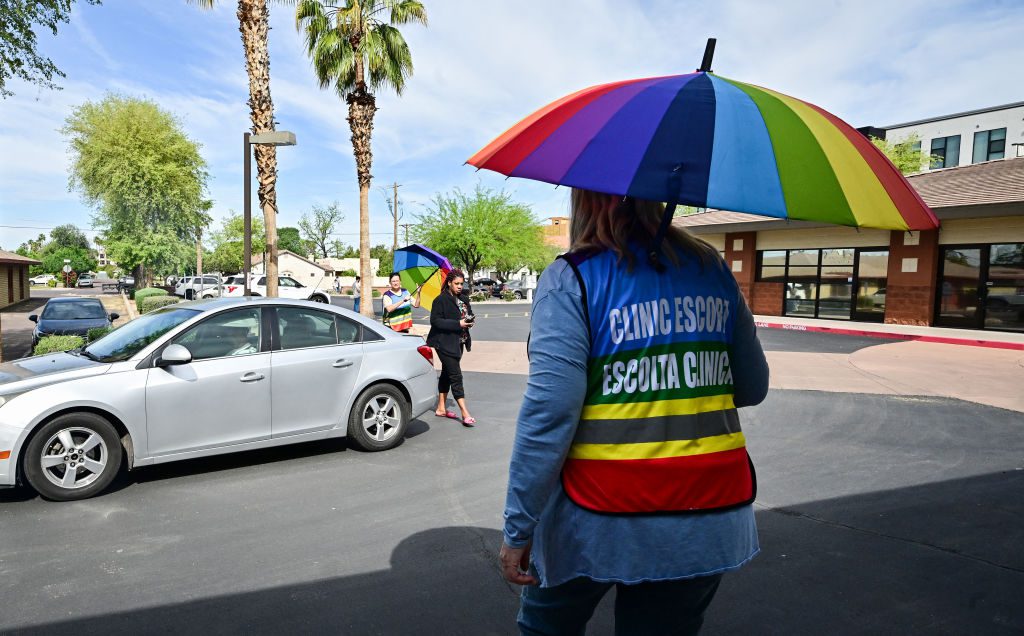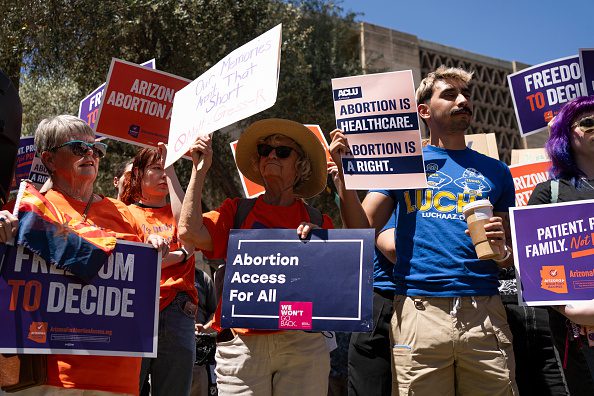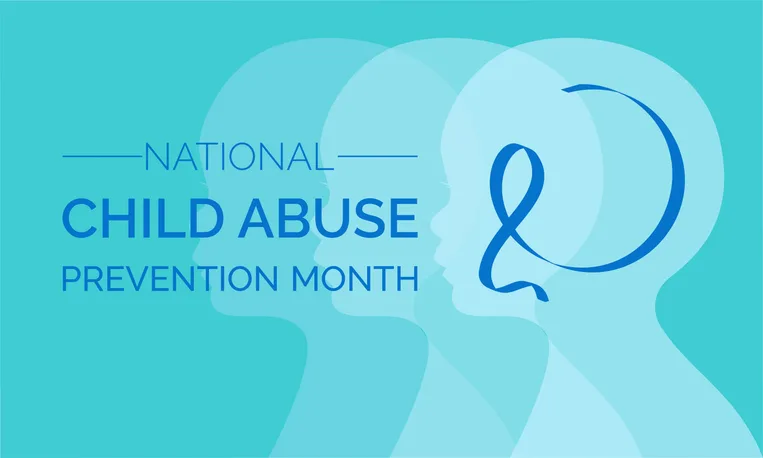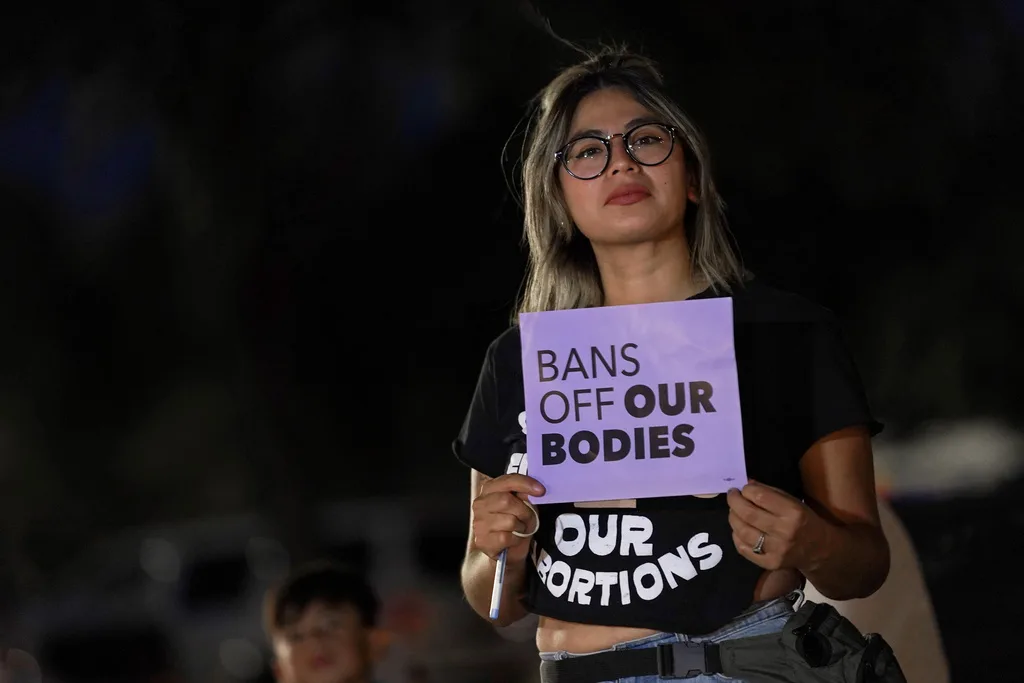
Credit: ASSOCIATED PRESS
Domestic Terrorism Prevents Women from Getting Lifesaving Abortions
Twenty-five years ago, in the kitchen of his suburban Buffalo, New York, home, Dr. Barnett Slepian was preparing soup with his family. The OB-GYN and abortion provider had just returned home from synagogue, where he had attended a memorial service for his father.
Suddenly, a bullet pierced the window, shattering Dr. Slepian’s spine and aorta and barely missing his son’s head. He died within hours.
In 1998, he was the fourth doctor and the seventh person in the United States to be murdered for administering abortion-related healthcare. George Pataki, the governor of New York at the time, denounced his killing as “terrorism.”
In the succeeding decades, the number of killings and incidences of violence against physicians who provide abortions, clinic workers, and patients increased exponentially.
Molotov cocktails were thrown into clinics, guns were shot, fires set, white powder was mailed, windows were smashed, staff was followed home, power lines were cut, women were harassed, blocked, and demonized while entering clinics. Providers began wearing bulletproof vests. Antiabortion violence, mostly at hospitals and clinics, was reaching a crescendo.
In 2015, the Anti-Defamation League labeled this rising anti-abortion violence as “single issue terrorism,” or terrorism committed by extremists who are centered on a very specific—and often narrow—issue.
Most single-issue terrorists’ actions are an extreme expression of a broader belief, e.g., opposing abortion. They are the ones who are willing to harass, maim, and kill to end the practice.
Despite dealing with the increasing access difficulties described above, at least women were still able to legally undergo abortions at hospitals and clinics in their own states. The fear of terrorism still centered on the single-issue terrorist lawbreakers.
That is, until June 24, 2022.
On that day, the US Supreme Court, newly populated with three conservative judges selected by Donald Trump for this very purpose;. Jurists who lied during their confirmation hearings in the US Senate—describing Roe v. Wade as “settled law,” which they said they would respect—removed the constitutional right to abortion by issuing their decision in Dobbs v. Jackson Women’s Health Organization, abandoning 50 years of legal precedent and throwing abortion legislation back to each state.
This shocking—yet sadly, expected—ruling not only began to halt abortions in the United States, but also accelerated another type of terrorism that has heretofore been overlooked or not considered criminal: government-sanctioned domestic terrorism.
Terrorism against women, perpetuated not by random extremists, but by Republican lawmakers and jurists themselves; governors, attorneys general and mayors; and trial and appellate judges. Republican political candidates. Donald Trump. And, in the case of Texas, ordinary citizens acting as legal vigilantes.
Take, for example, the legislative fiat to hunt down women and their “abortion accomplices” out on Texas roads, like lassoing escaped cattle.
The repeal of Roe v. Wade was tantamount to gasoline being poured on a fire. Domestic terror against women has suddenly exploded. It is terror without the guns, without the firebombs, without explosives.
Unfortunately, it still involves killing.
This is part one in a series on the increase in violence against women since the US Supreme Court overturned Roe v. Wade, and the future of abortion care and emergency medical treatment in the United States.
Politics

‘Attempted insurrection:’ Republican lawmakers retaliate after Dems’ success on abortion ban repeal
Members of the Arizona Freedom Caucus filed an ethics complaint after Democrats’ vocal push to repeal the ban sparks change. Republican legislators...

VIDEO: Everything you need to know about the Arizona abortion ban repeal
@coppercourier Here’s everything you need to know about when it begins, the push to repeal it, and what that means for the @arizonaforabortionaccess...
Local News

AG Mayes says earliest day Arizona’s 1864 abortion ban can be enforced is June 27
Arizona Attorney General Kris Mayes says the earliest day the state’s 1864 abortion ban can be enforced is June 27. The Arizona Supreme Court on...

Who did the Arizona Cardinals take in the 2024 NFL draft?
The Arizona Cardinals went 4-13 last season, a low enough record to grab one of the top spots in the 2024 NFL draft. Last season, quarterback Kyler...







